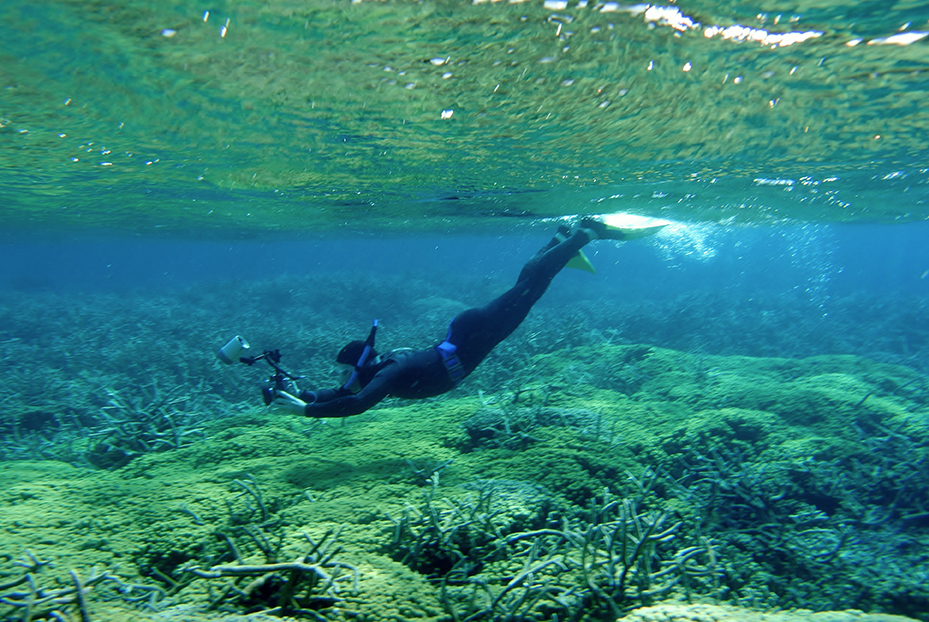Coral reefs have been in the news lately for all the wrong reasons: island construction projects that are burying reefs, El Niño causing coral bleaching, and the risk to corals from carbon pollution. So it was unwelcomed news when we learned in October about a new study, Archives of Environmental Contamination and Toxicology, that shows a common ingredient in sunscreen, oxybenzone, is bad for corals.
Even at very low concentrations, the growth rate of baby corals exposed to oxybenzone slowed down and they became deformed. When the concentration was increased, baby corals bleached, which caused them to release their food-generating symbiotic algae.
Scientists are just starting to understand how chemicals like sunscreens can harm corals. The current study is an important step forward, but we expect to learn more about the effects of oxybenzone on corals in the years to come. We will also learn about how a myriad of chemicals are interacting to create a potentially toxic soup for corals. In the meantime, we know enough to take action. Oxybenzone is demonstrably bad for corals and we need to limit its concentration in coastal waters.

Corals are as important to the reefs as trees are to the forest: they build the habitat for all of the other life that calls the reef home. But by knowing that this risk exists for corals, we view this as an opportunity to do something small to help: when you’re visiting coral reef areas, don’t lather up with sunscreen, instead cover up for corals.
Everyone can take one or more of these simple steps:
- Wear a full body UV swimsuit
- Cover up with long sleeve sun shirt
- Wear a hat and sunglasses
- Limit exposure to the sun’s rays (particularly during the middle of the day)
As an added benefit, covering up just might be good for you, too. In addition to harming corals and other animals, scientists have identified oxybenzone as an endocrine disruptor with estrogenic effects (acting similarly to estrogen in our bodies) by the Environmental Working Group (EWG) (Sunscreen Guide) and the International Chemical Secretariat (Substitute it Now! (SIN)).
When covering up is not an option, there may be some sunscreens that are less harmful to corals. In particular, research indicates that nonchemical, mineral-based sunscreens are best (such as top EWG ranked W.S. Badger Company, All Terrain, and Babo Botanicals sunscreens).
Corals face many stressors that put the entire reef ecosystem at risk. Finding solutions for corals is important for the many species that call the reef home. It’s also important to the millions of people around the world who rely on coral reefs to provide food, protect shorelines from damaging storms and sea level rise, and to create economic opportunities through tourism. The good news is that many places are already working to help keep corals healthy by maintaining thriving fish populations and reducing coastal water pollution. If we can reduce harmful sunscreens from the coastal environment, we can give corals a little more breathing room to adapt to a changing world.
